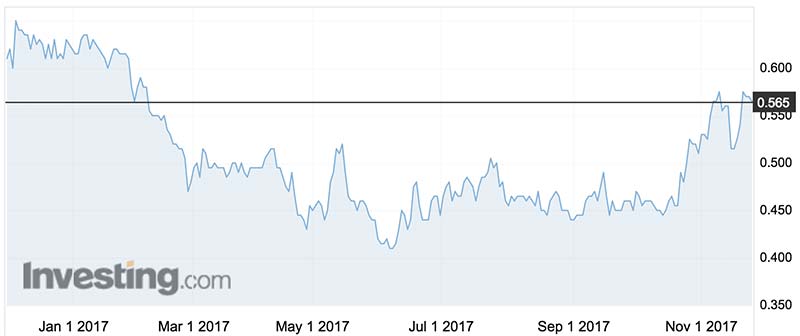Blockchain deemed too ‘risky’ for new Peppermint money transfer service

Families of ex-pat Filipinos will be counting their bills, as PIL enters the remittance market. Picture: Getty.
Mobile banker Peppermint Innovations has eschewed fashionable blockchain and crypto currency technologies as too risky for their new international remittance play.
Peppermint’s new subsidiary, Peppermint Payments, will facilitate international money transfers from Australia, starting first with the Filipino market.
But despite blockchain stocks rising in market sentiment, Peppermint (ASX:PIL) is not convinced.
Blockchain is a technology that provides a public ledger of transactions used as the foundation for digital currencies such as Bitcoin. Each “block” is like a bank statement that is connected to other blocks to form a chain.
“PIL management considers these technologies important and potentially game-changing in the payments landscape but not sufficiently proven or in use to adopt in this context yet,” Peppermint told investors.
“Importantly, advice from regulators, banks and prospective partners indicated that this would be risky from a compliance perspective. Further, these technologies are not yet sufficiently popular in our target markets to demand adoption.”
Customers in their initial Filipino market still prefer over-the-counter remittances, especially when combined with their local grocery store.

Earlier this month, the central bank of the Phillipines reported cash remittances from abroad were approximately $2.9 billion dollars for the year, down 8.3 per cent from $3.1 billion the year prior.
Banking Committee chair Henry Ong called out the sector to make it easier, especially for those in Australia and the Middle East.
“I am therefore urging the Philippine banking and remittance sectors to step up and step forward to address this gap. Open more service facilities, extend banking hours, improve your online remittance services, and forge new remittance relationships with money transfer agencies overseas,” Ong said.
Shareholders rallied on the news, the stock trading up 16 per cent on Monday, at 1.4c to give it a market cap of $9.39 million
The contribution of almost 10 per cent of the Philippine economy comes down to a cultural notion that once abroad you have something to give.
“With PIL establishing extensive domestic payment capabilities in the Philippines, we have a great opportunity to “connect the dots” between Filipino ex-pats living in Australia and family members living in the Philippines, earning AUD revenues from both fees and FX margins,” they said in the announcement today.
But they haven’t ruled out other connects to the so-called ‘land of immigrants’, citing potential for ex-pat populations from India, Sri Lanka, Pakistan and Lebanon.
UNLOCK INSIGHTS
Discover the untold stories of emerging ASX stocks.
Daily news and expert analysis, it's free to subscribe.
By proceeding, you confirm you understand that we handle personal information in accordance with our Privacy Policy.








